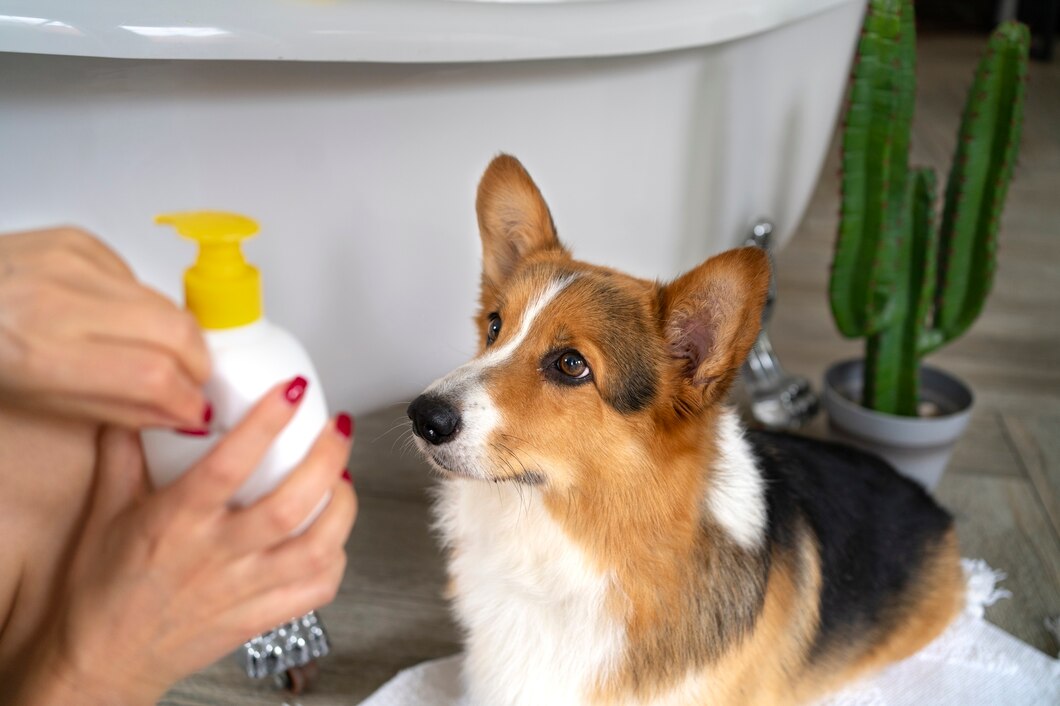Causes, Remedies, and Preventive Measures For Dog Upset Stomach


If you have a dog, then you have probably dealt with your dog having an upset stomach at some point. It can be quite distressing to see our furbabies in pain, vomiting or pooping a lot and not eating anything, which are some of the common reactions to dog upset stomach.
However, a dog upset stomach is quite a common and treatable condition if diagnosed early enough. If your dog suffers from frequent stomach upsets, then the best thing you can do is consult a veterinarian. You can also go through this article to understand the common causes, remedies, and preventive measures for dog upset stomach.
Common Causes of Dog Upset Stomach

Dogs are known for having a curious nature along with a sensitive digestive system. So whenever they eat things that they shouldn’t, like garbage, spoiled food, table scraps, or unfamiliar items, it can lead to gastrointestinal upset. While dietary indiscretion is the most common cause for upset stomach in dogs, there can be several other causes of upset stomach in dogs. We have explained these causes in detail below:
Sudden Changes in Diet
Any sudden changes in the dog’s diet, such as abruptly introducing them to a new dog food brand or a treat, can cause upset stomachs in dogs. This happens because the digestive enzymes present in a dog’s gastrointestinal tract are not familiar with the components of the new diet. As a result, it cannot break down the ingredients in an efficient manner. This leads to inflammation of the intestinal lining, causing adverse reactions like vomiting and diarrhea. So you need to know how to transition your dog to new food.
Food Intolerance Or Allergies
Some dogs may be allergic to one or more ingredients in their food or their may not tolerate some food items such as grains, dairy, or specific proteins. These can lead to gastrointestinal upset, including vomiting and diarrhea. If you have a dog with a sensitive stomach, then you should know how to choose the best dog food for your fur baby.
Ingestion Of Foreign Objects
Dogs may swallow objects such as toys, bones, rocks, or fabric, which can cause blockages in the digestive tract and result in upset stomach symptoms.
Bacterial Or Viral Infections
Dogs can get several gastrointestinal infections from contaminated food, water, or exposure to other infected animals. Common culprits include Salmonella, Campylobacter, or canine parvovirus. Intestinal parasites like roundworms, hookworms, or Giardia can also cause upset stomach symptoms in dogs.
Pancreatitis
This is an inflammation of the pancreas that can cause abdominal pain, vomiting, and diarrhea in dogs. High-fat meals or certain medications can trigger it.
Toxin Ingestion
Dogs are susceptible to ingesting toxic substances such as household cleaners, certain plants, medications, or chemicals, which can cause gastrointestinal upset. During the holiday season, we tend to decorate our homes with lots of colorful plants like Mistletoe, Poinsettias, Lilies, Holly, Amaryllis etc. Some of these common holiday plants can be toxic to pets, so make sure to place them in areas where your pet cant access them easily.
Signs And Symptoms Of Upset Stomach In Dogs

Dogs with an upset stomach may exhibit various signs and symptoms. It’s important to note that these symptoms can vary in severity and may overlap with other health conditions. If your dog is experiencing persistent or severe symptoms, it’s best to consult with a veterinarian for a proper diagnosis.
Here are some common signs of an upset stomach in dogs:
Vomiting:
This is one of the most obvious signs of an upset stomach. Dogs may vomit to expel the contents of their stomach, and the vomit may contain undigested food, bile, or foam.
Diarrhea:
Loose, watery, or frequent bowel movements may indicate gastrointestinal upset. Diarrhea can range from mild to severe and may be accompanied by straining or urgency to defecate. Pay attention to your dog’s poop color and consistency and contact the vet in case you see out of the ordinary. You can also contact a dog poop chart.
Loss of appetite:
Dogs suffering from upset stomachs may show a decreased interest in food or altogether refuse to have any food. They may also exhibit picky eating or nibbling at their food without finishing it.
Abdominal Discomfort:
Dogs may show signs of stomach pain or discomfort, such as restlessness, pacing, whining, or a hunched posture. They may also exhibit sensitivity when their abdomen is touched.
Excessive Gas:
Flatulence or excessive gas production can be a sign of an upset stomach. Dogs may pass gas frequently or have a bloated appearance.
Lethargy:
Dogs with upset stomachs may appear tired, lack energy, or be less active than usual. They may show reduced interest in their usual activities or interactions.
Excessive Drooling:
Dogs may salivate more than usual when they have an upset stomach. This can be accompanied by lip licking or smacking.
Burping:
Similar to humans, dogs may burp more frequently when they have digestive disturbances. This can be a sign of excess gas in the stomach.
Changes In Behavior:
Dogs may display changes in behavior or mood when their stomach is upset. They may seem irritable, seek more attention, or withdraw from social interaction.
Note that these signs and symptoms can also be seen in other health conditions, so it’s important to consult with a veterinarian for an accurate diagnosis and appropriate treatment for your dog.
Remedies for Upset Stomach in Dogs

When your dog has an upset stomach, there are several at-home remedies you can try to help alleviate their discomfort. However, it’s important to note that if your dog’s symptoms are severe, persistent, or worsening, it’s best to ask a veterinarian for proper diagnosis and treatment.
Here are some general remedies for mild cases of upset stomach in dogs:
Fasting: If your dog is suffering from stomach upset, then don’t give them any food for 12 to 24 hours. It will enable your dog’s digestive system to rest and recover. Don’t worry about your furbabies’ health. It is perfectly normal for dogs to go without eating anything for long periods of time. You can also offer them plain bone broth which contains a lot of essential nutrients and can help accelerate the healing process.
Bland diet: After making your dog fast for 12-24 hours, gradually reintroduce food with a bland diet. This typically comprises easily digestible foods such as boiled chicken (skinless and boneless) and plain white rice or boiled sweet potatoes. Give them small amounts of food on a frequent basis over a few days until your dog’s stomach settles.
Pumpkin: Plain, canned pumpkin (not pumpkin pie filling) can help soothe your dog’s upset stomach. The high fiber content can regulate digestion and provide relief from diarrhea. Offer a small amount (about a teaspoon per 10 pounds of body weight) mixed with your dog’s food.
Aside from trying out the above-mentioned at-home remedies, you should ensure that your dog stays hydrated by providing fresh, cool water. If your dog is reluctant to drink, you can try giving them electrolyte solutions made for dogs in small quantities or ice cubes made from low-sodium broth. Also monitor your dog closely and contact your veterinarian if their condition doesn’t improve or if they show signs of dehydration, severe pain, or other concerning symptoms.








Leave A Comment